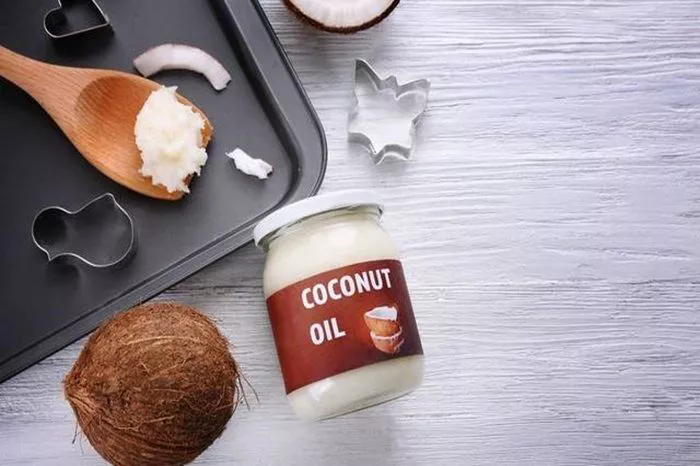Coconut oil has long been celebrated for its myriad benefits, from cooking to skincare, and notably, as a hair care product. Many people use it to moisturize and nourish their hair, yet some find that it leaves their hair feeling dry rather than hydrated. This paradox can be puzzling. This comprehensive article explores why coconut oil may have the opposite effect on some individuals, examining its composition, application methods, and individual hair types to provide a clearer understanding of this phenomenon.
The Science Behind Coconut Oil
Composition of Coconut Oil
Coconut oil is composed mainly of saturated fats, including medium-chain triglycerides (MCTs) such as lauric acid, capric acid, and caprylic acid. These fatty acids are known for their ability to penetrate the hair shaft and provide conditioning benefits.
How Coconut Oil Interacts with Hair
When applied to hair, coconut oil is supposed to penetrate the hair shaft, reducing protein loss and providing moisture. However, its effectiveness can vary depending on several factors, including hair type, application method, and environmental conditions.
Why Coconut Oil Might Make Your Hair Dry
Overuse or Incorrect Application
Excessive Application
Using too much coconut oil can lead to build-up on the hair. This build-up can weigh down the hair, making it feel greasy and leading to dryness over time as the oil prevents moisture from penetrating the hair shaft.
Incorrect Application Methods
Applying coconut oil directly to dry hair without proper conditioning can lead to a dry feeling. Without moisture to balance the oil, your hair might not absorb it effectively, causing a lack of hydration and an overall dry texture.
Coconut Oil and Hair Porosity
Understanding Hair Porosity
Hair porosity refers to how well hair absorbs and retains moisture. Low-porosity hair has a tightly closed cuticle layer, which can make it difficult for oils to penetrate. High-porosity hair, on the other hand, has a more open cuticle layer, which can absorb oil but may also lose moisture quickly.
Effects on Different Porosities
For low-porosity hair, coconut oil can sit on the surface rather than penetrating the hair shaft, leading to a dry appearance. For high-porosity hair, while the oil may initially provide moisture, it can also cause the hair to become overly dry if not used properly, as the hair may release moisture too quickly.
Coconut Oil and Protein Overload
Role of Proteins in Hair
Coconut oil is known for its protein-binding properties, which can help reduce protein loss in the hair. However, excessive use can lead to a condition known as protein overload.
Symptoms of Protein Overload
Protein overload occurs when the hair has too much protein and not enough moisture. This imbalance can lead to dryness, brittleness, and increased breakage. If coconut oil is used too frequently or in excessive amounts, it can contribute to this problem.
The Effect of Environmental Factors
Climate and Coconut Oil
Environmental conditions such as humidity and temperature can affect how coconut oil interacts with your hair. In dry climates, coconut oil may not provide the necessary moisture balance, leading to a dry feeling.
Interactions with Other Products
Using coconut oil in conjunction with other hair products can also influence its effectiveness. For instance, using coconut oil over other leave-in conditioners or styling products can create a barrier that prevents proper moisture absorption, resulting in dry hair.
Choosing the Right Type of Coconut Oil
Types of Coconut Oil
Not all coconut oils are created equal. Virgin coconut oil, extracted from fresh coconut meat, is generally considered the best for hair care due to its minimal processing and higher nutrient content. Refined coconut oil, which undergoes more processing, may not provide the same benefits and could potentially cause dryness.
Selecting the Best Oil
For optimal results, choose high-quality, organic, virgin coconut oil. Avoid products with added chemicals or those that have been heavily processed, as these can have adverse effects on your hair.
See also: 10 Best Onion Hair Oil for Hair Growth
Balancing Coconut Oil with Other Hair Care Practices
Using Coconut Oil in Moderation
Avoiding Over-application
Use coconut oil sparingly to avoid build-up. A small amount is usually sufficient to reap the benefits without overwhelming your hair.
Combining with Moisturizing Products
Layering for Better Results
Pair coconut oil with moisturizing conditioners or leave-in treatments to balance its effects. This combination can help lock in moisture and prevent the hair from becoming dry.
Rinsing Properly
Thorough Rinsing Techniques
Ensure that you thoroughly rinse out coconut oil after application. Residual oil can contribute to dryness if not properly removed. Use a gentle, sulfate-free shampoo to cleanse the hair and remove any build-up.
Individual Hair Type Considerations
Understanding Your Hair Type
Everyone’s hair is different. What works for one person may not work for another. Pay attention to how your hair responds to coconut oil and adjust usage based on its specific needs.
Customizing Your Routine
If you find that coconut oil consistently makes your hair dry, consider adjusting the amount used or the frequency of application. You may also explore other oils or hair care products better suited to your hair type.
Conclusion
Coconut oil is renowned for its numerous benefits, but its effects on hair can vary. While it is intended to moisturize and nourish, factors such as overuse, hair porosity, protein overload, environmental conditions, and the type of coconut oil used can influence its effectiveness. By understanding these variables and adjusting your hair care routine accordingly, you can better manage and balance the use of coconut oil to achieve healthier, more hydrated hair. Remember, the key is to tailor your hair care practices to your individual needs and monitor how your hair responds to different treatments.


